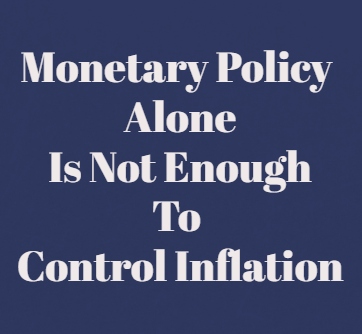

By Our Editorial Team
First publised on 2022-04-09 03:37:29
The MPC meeting predictably maintained status quo on key policy rates and the accommodative stance. But with rising inflation, RBI faces a dilemma. Almost all other central banks have targeted inflation and have started, or indicated a strong willingness to start, raising rates and squeeze liquidity. In India's case, as the economy is showing signs of strong recovery despite consumer demand not going up significantly, the RBI cannot totally junk support for growth to cool prices. Further, the current inflation is not demand-pull inflation. It is cost-push inflation due to high commodity and fuel prices and disruption in supply chains. Hence, squeezing out the excess money floating in the economy is unlikely to cool prices. Also, raising rates at this juncture is going to have a negative effect on growth.
But the RBI has rightly said that it will henceforth bring inflation above growth in its list of priorities. It has also revised the inflation projections to 5.7% from 4.5% earlier. It has also said that India is likely to grow at just 7.2% in FY23 and not at 7.8% as forecast earlier. The ongoing war in Ukraine, along with the sanctions placed on Russia, is likely to cause further disruptions for supply chains and increase the price of crude and commodities and is the main cause of worry. The RBI has indicated that it will have an "eye on withdrawal of accommodation", signaling that it might raise rates going forward and also change its stance from accommodative to neutral.
But more than monetary policy, the economy now needs fiscal policy intervention by the government. With tax collections at record high (India collected Rs 27.1 lakh crore in taxes in FY22 which was 34% higher than FY21) and trends showing that this is likely to increase further, there are many options available for the government to intervene and provide relief. It must reduce Central taxes on fuel to reduce prices and prevent high transportation cost from having a spiraling effect on inflation. It must spend on infrastructure projects to give further push to growth. It must also provide DBT to the poor in cash where needed and keep on helping businesses through restructuring of loans or providing new loans. It must also crack the whip on arbitrary upward revision of prices of products in some sectors.











